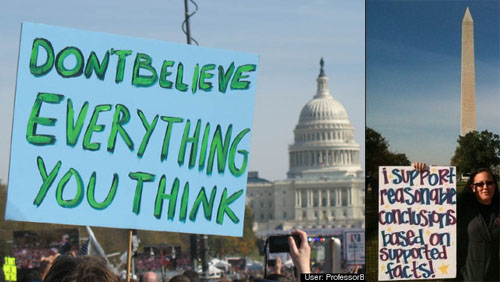
Unclear writing, now as always, stems from unclear thinking–both of which ultimately have political and economic implications.
A well cultivated critical thinker:
- Raises vital questions and problems, formulating them clearly and precisely;
- Gathers and assesses relevant information, using abstract ideas to interpret it, effectively comes to well-reasoned conclusions and solutions, testing them against relevant criteria and standards;
- Thinks open-mindedly within alternative systems of thought, recognizing and assessing, as need be, their assumptions, ideologies, implications, and practical consequences; and
- Communicates effectively with others in figuring out solutions to complex problems.
Critical thinking is, in short, self-directed, self-disciplined, self-monitored, and self-corrective thinking. It presupposes assent to rigorous standards of excellence and mindful command of their use. It entails effective communication and problem solving abilities and a commitment to overcome our native egocentrism and sociocentrism. – Adapted from Richard Paul and Linda Elder, The Miniature Guide to Critical Thinking Concepts and Tools, 2008.
“A persistent effort to examine any belief or supposed form of knowledge in the light of the evidence that supports it and the further conclusions to which it tends.” Edward M. Glaser. An Experiment in the Development of Critical Thinking. 1941.
Chaffee’s Definition of Critical Thinking
Critical thinkers are people who have developed thoughtful and well-founded beliefs that guide their choices in every area of their lives. In order to develop the strongest and most accurate beliefs possible, you need to become aware of your own biases, explore situations from many different perspectives, and develop sound reasons to support your points of view. These abilities are the tools you need to become more enlightened and reflective “critical thinker” (p. 28).
For Chaffee, critical thinking involves the following:
- Carefully analyzing and evaluating your beliefs in order to develop the most accurate beliefs possible.
- Viewing situations from different perspectives to develop an in-depth understanding.
- Supporting viewpoints with reasons and evidence to arrive at thoughtful, well-substantiate conclusions.
- Thinking critically about our personal “lenses,” which shape and influence the way we perceive the world.
- Synthesizing information into informed conclusions that we are willing to modify based on new insight. (p. 35)
[From The Thinker’s Way by John Chaffee, Boston: Little, Brown, 1998]

